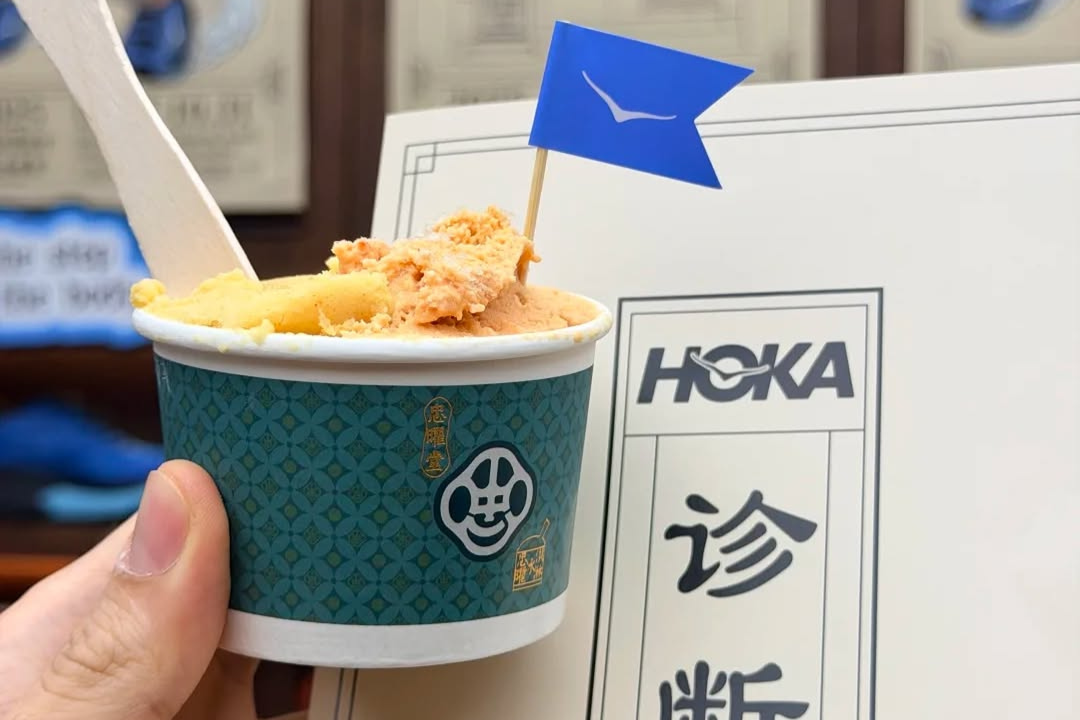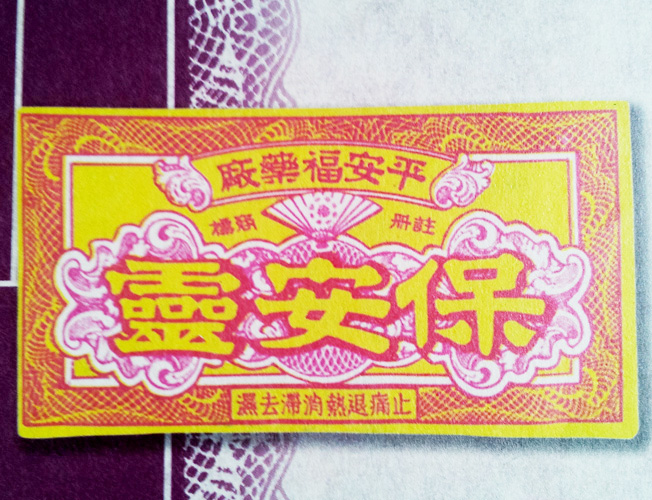We owe a lot to the advancements of modern medicine. But Western medicine, and the shadowy figures in pharmaceutical board rooms, may be missing some of the bigger picture.
Powerful prescriptions and hands-on surgeries can be necessary — but in the long term, they can also lead to recurring symptoms, side effects, and general imbalances in the body.

Acupuncture and herbal medicine practitioner Emily Siy
With all that said, it’s no surprise that public curiosity about holistic medicine is on the rise. Emily Siy, an acupuncture and herbal medicine practitioner based in New York City, says there are, in fact, fundamental differences in outlook between Chinese and Western medicine. She says:
“Traditional Chinese Medicine doesn’t prescribe the same treatment for one condition. Instead, it’s important to discuss an individual’s unique presentation, condition, and tendencies.
“Treatment should always be customized to the individual — that’s why TCM is successful, but sometimes difficult to understand for those who come from a Western background.”
“Difficult to understand” is a recurring theme. Feelings toward traditional Chinese medicine in the US tend to skew negative — the practice often gets conflated with pseudoscience and exotic animal abuse, or viewed as a primitive and outdated forerunner to modern medicine.
When the World Health Organization endorsed TCM, Forbes told us that we should “expect deaths to rise.” When scientists hypothesized that Covid-19 could have been transmitted to humans by pangolins, the internet was quick to point fingers at the underground TCM trade, where the animal has been hunted for the supposed medicinal properties of its scales.
Related:
 Coronavirus Stirs Rumors and Racism Towards Chinese Eating Habits and HealthOn social media, ignorant rhetoric about food and health is spreading faster than the virus itselfArticle Feb 03, 2020
Coronavirus Stirs Rumors and Racism Towards Chinese Eating Habits and HealthOn social media, ignorant rhetoric about food and health is spreading faster than the virus itselfArticle Feb 03, 2020
Wildlife trade, especially the trade of endangered animals, is a very serious concern. But for most of the world’s Chinese medicine users, endangered animals play no role in treatment. That subsection is incredibly small compared to the proportion of TCM users who focus on standard wellness practices such as massage, acupuncture, and herbal medicine.
“There are misunderstandings around TCM and herbal medicine. The US has a long history of xenophobia and anti-Chinese sentiments, and it does affect how TCM is viewed in the West,” says Siy.
“The US tends to hold Western culture above others, labeling other traditional medicine systems as ‘alternative’ or non-valid forms of medicine. There are evidence-based research studies on different forms of Chinese medicine, but writers will often claim that it’s pseudoscience.”
Principles throughout holistic and herbal medicine have been backed up by modern scientific testing, however, and more connections are being discovered each day.
Related:
 6 Acupressure Hacks Everyone Should KnowArticle Jan 08, 2019
6 Acupressure Hacks Everyone Should KnowArticle Jan 08, 2019
But before we dive in, let’s not get too excited — in most cases, you still need a professional.
“It is not typical to use single herbs in Chinese medicine. There’s an art and science to combining herbs,” says Siy. “This is the difference between using herbs and prescribing herbal medicine. In Chinese medicine, herbs are combined in order to enhance their functions, create new functions, or to modify an herb that could be too strong or potentially toxic. Single herbs are much more limited in their usage.”
For beginners wanting to explore the world of Chinese herbal medicine, however, here is our guide to some basic, single herbs backed by science that you can start using at home.
1. Chrysanthemum

“Chrysanthemum flowers are a popular tea at dim sum,” says Siy. “It’s a good summer drink, and helps to cool you down.”
What does it mean to cool you down? In Chinese medicine, herbs are classified by their energetic properties, rather than chemical components. Chrysanthemum is known for its cooling effect, and so is used to fight off conditions associated with excess heat.
“It can help with early signs of a sore throat or fever. It can also help with red, itchy eyes and certain skin irritations.”
2. Black Sesame Seeds

TCM knowledge notwithstanding, any Chinese food fan worth their salt will be familiar with this one.
Sesame seeds are believed to be one of the world’s earliest spices to be put into use. Black sesame is a common ingredient in Chinese cuisine, but the seeds themselves can also be consumed on their own for medicinal purposes.
“Black sesame seeds are abundant in vitamins and nutrients,” explains Siy. “In Chinese medicine they’re known for promoting healthy hair growth and delaying graying. Others use black sesame seed for constipation, dizziness, numbness, or to increase breast milk production.”
The seeds are usually harvested in early autumn just after ripening, and sun-dried before they’re consumed. Their oil content helps to lubricate the intestines, adding to a food that’s already naturally high in fiber.
3. Goji Berries

Goji berries, also called Chinese wolfberries, have skyrocketed in popularity over the past couple decades as a trendy superfood.
But are goji berries really that good for you? The answer seems to be a resounding “yes.”
“Goji berries help retain moisture in the body,” says Siy. “They can be used to promote a healthy skin complexion, or to combat certain eye conditions, especially dryness.”
Related:
 Who Uses Chinese Medicine, and Why?Article Mar 24, 2018
Who Uses Chinese Medicine, and Why?Article Mar 24, 2018
Chinese medicine’s use of goji berries for skin, eye, and liver health has been backed by the scientific community. One study found that seniors who drank goji berry juice for 90 days developed markedly increased amounts of certain antioxidants, while a second study found that goji berries protect the retina from glaucoma-causing ganglion cells.
Research on animal models shows that goji berries can promote liver health and stop the progression of alcohol-induced disease, and when mice were given 5% goji juice, it gave them enough antioxidants to protect against UV light damage and skin disorders.
How much more super can you get?
4. Ginger

“Ginger has many anti-inflammatory properties,” says Siy. “It can help with upset digestion, nausea, and is safe to use for morning sickness. Taken early, ginger can be used to help fight off colds and the flu.”
In Chinese medicine, ginger is known for its warming properties — think about your mom pouring a warm cup of tea with ginger and lemon when you’re feeling sick.
Warming ingredients encourage the flow of qi — energy in the body seen as important in traditional Chinese medicine — and fluids in the body, which is why you may sweat when eating spicy food. In Chinese medicine, that heat is thought to strengthen the wei qi, the TCM version of the immune system.
If chrysanthemum tea is your summer cool down, make ginger your winter warmer.
5. Astragalus

“This is a great herb to help with the fatigue that can come after a long illness,” says Siy. “Astragalus can be helpful for those with weak lung conditions, and can help boost energy and immunity. However, it’s not appropriate to use while you’re actively sick.”
This may be the only herb in our list that you’ve never heard of before. So what is astragalus?
Astragalus, also called huangqi (黄芪) or Mongolian milkvetch, is one of the fifty fundamental herbs of Chinese medicine. And although there are over 2,000 species of astragalus, only two — Astragalus membranaceus and Astragalus mongholicus — are used primarily as medicines.
Chinese medicine users take astragalus to invigorate qi, promote yang energy (of yin and yang fame), and bolster the body’s wei qi defenses.
Related:
 Does Traditional Chinese Medicine Have a Place in a Brand-New Epidemic?Without a vaccine for Covid-19, many in China – young and old – have turned to TCM remediesArticle Feb 17, 2020
Does Traditional Chinese Medicine Have a Place in a Brand-New Epidemic?Without a vaccine for Covid-19, many in China – young and old – have turned to TCM remediesArticle Feb 17, 2020
Outside of Asia, many still view Chinese medicine through the shroud of exotic mystery.
However in daily practice, there’s often nothing exotic about it — our bodies want to be in balance, and traditional Chinese medicine seeks to restore that balance in nuanced ways.
“Cultural differences make many people misunderstand the medicine,” says Siy. “In the US, people often wait for the symptoms to become severe before seeking help. Not everyone has access to healthcare, and hospital bills always play a role. Chinese medicine is about health maintenance and disease prevention — it can be hard to understand that one should have been using herbal medicine the whole time.”
But by listening to our bodies and taking care of ourselves in little ways, we might find that those doctor visits become less and less frequent.
All illustrations: Helen Haoyi Yu


















